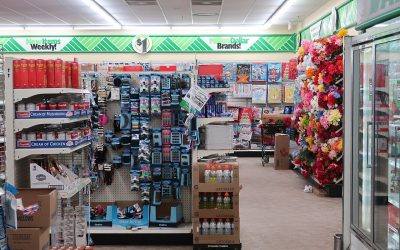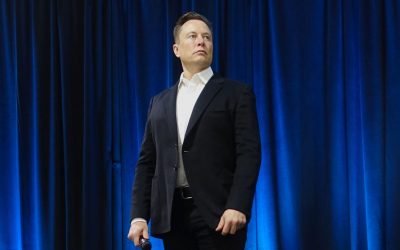Today’s politicians want to spend more on EVERYTHING: Amtrak subsidies, sports stadium subsidies, green energy subsidies, even fossil fuel subsidies …
President Joe Biden says the handouts will “put more money in your pocket.” House Speaker Nancy Pelosi claims they will “protect the planet for the children.”
They might. But a disproportionate amount of the money will end up in the hands of big companies — the ones with the most lawyers and lobbyists.
A new documentary, “Corporate Welfare: Where’s the Outrage?” gives examples of this. This week, my new video covers two of the worst.
First, tax “breaks.”
Memphis, Tennessee, has a program called the Economic Development Growth Engine, meant to entice new businesses to move to Memphis by giving them tax breaks.
The Growth Engine gave Swedish furniture maker IKEA a $9.5 million tax break. In exchange, IKEA agreed to create 175 new jobs.
Local furniture sellers pushed back.
“What about us?” asks Ron Becker, owner of The Great American Home Store. “We pay taxes here. Where is our financial incentive?
Good question. Lower taxes would be a good incentive. But Memphis politicians can’t lower taxes when they’re giving big companies tax breaks.
Such tax breaks are complex, so it’s big companies with plenty of tax accountants that generally get them.
Memphis is “pitting these gigantic corporations who know the government and have tons of lobbyists against mom and pop shops in our community that we’re trying to save,” complains Mark Cunningham of the Beacon Center, Tennessee’s free-market think tank. “You’re basically asking people to pay more tax dollars in order for their competitor to succeed over them.”
“These are our tax dollars,” he adds. “We work really hard for them. They should go to things we need: essential government services, roads, schools, police, fire. … It’s just not the role of government to give money to big corporations.”*
Two years later, IKEA still hasn’t created all the jobs they promised, and several local furniture stores closed.
“Such programs begin with good intentions,” documentary host Johan Norberg points out, “but they result in unintended consequences.”
He covers another handout with nasty unintended consequences: farm subsidies.
Farm Bill supporters claim handouts and special crop insurance deals are needed to guarantee America’s stable food supply.
That’s bunk. Fruit and vegetable farmers get no subsidies. There are no shortages of apples or pears. Crops do fine without subsidies.
“Only the big guys who have the resources” get subsidies, explains Mercatus Center economist Veronique de Rugy.
Some are not even American companies.
“The largest pork producer in the U.S., Chinese-owned Smithfield Foods, increased consumer prices,” says Norberg. “Yet they still benefited from the government subsidy system, heavily lobbying to keep feed prices low. It’s estimated that in 2019 alone, agribusiness spent over $135 million on lobbying.”
It’s worth spending $135 million to get billions in return.
By contrast, Jeff Hawkins spends nothing on lobbying.
Hawkins owns a farm in Indiana. He sells chicken to restaurant owner Pete Eshleman. The Indiana legislature asked Hawkins and Eshleman to give a presentation on farmer’s markets and local restaurants.
When they finished speaking, Indiana politicians told them that selling chicken directly to restaurants is “illegal.” The Indiana Farm Bureau, State Poultry Association and Pork Producers Association all testified in favor of banning direct farm-to-restaurant sales.
“They basically came up with a story that small farms processing chicken on the farm is a health risk,” complains Eshleman.
What really happened was that bigger, politically connected farms used the legislature to ban competition.
But Hawkins’ chicken was popular. His customers complained on social media and flooded the phone lines of state representatives.
In a rare twist, the politicians gave in.
Now, says Norberg, “restaurants like Pete Eshelman’s can serve locally sourced poultry, and neighbors have a choice in the food that they eat.”
It was a small victory against America’s anti-freedom, pro-big business, welfare-for-the-rich regulations.
You can watch Norberg’s full documentary at FreeToChooseNetwork.org.
* Roads, schools, etc. are not essential government services and should be handled by the free market under capitalism. – Editor.




